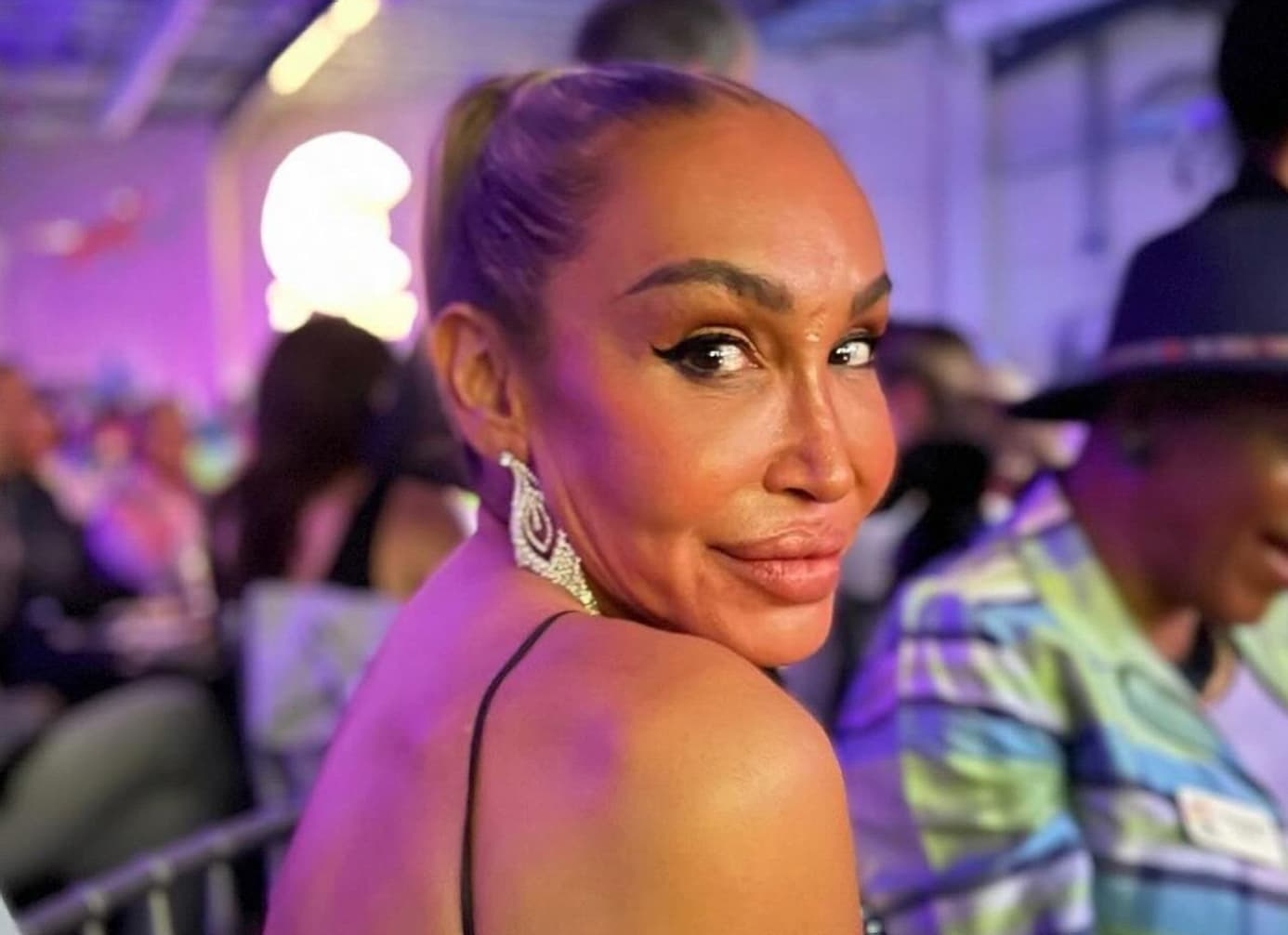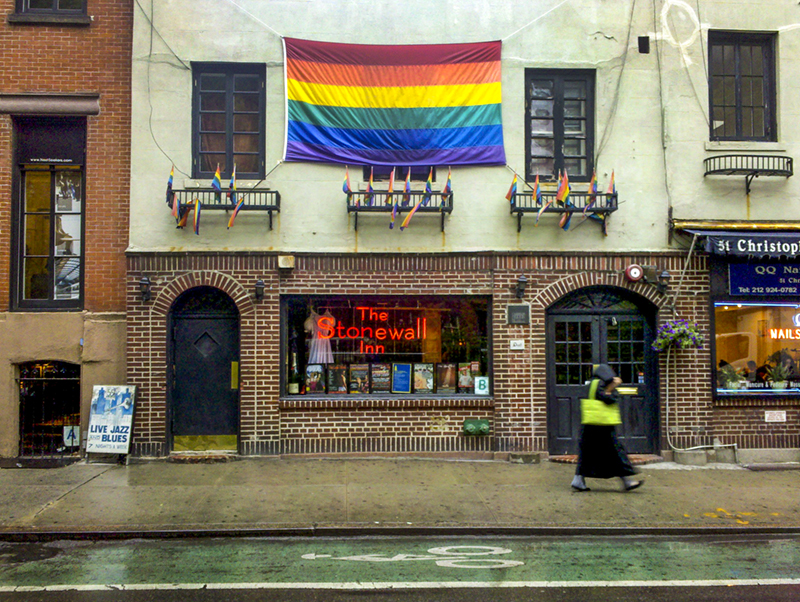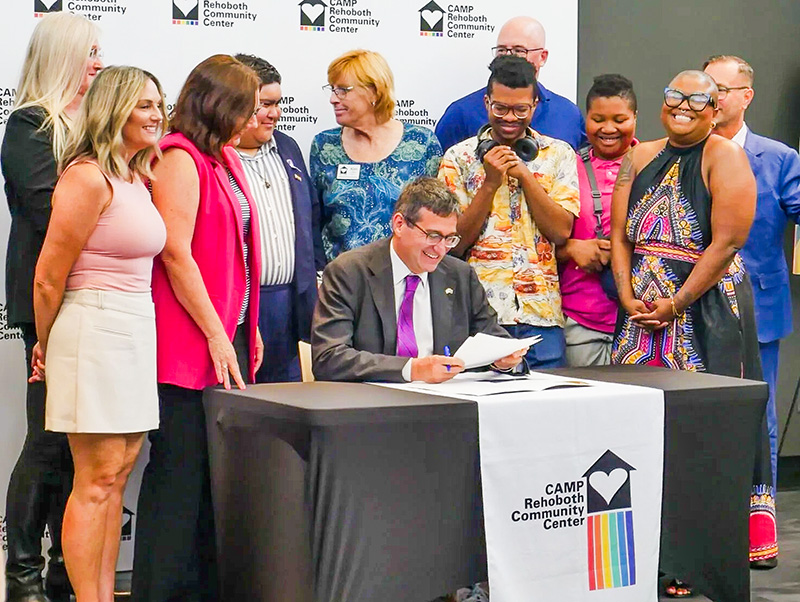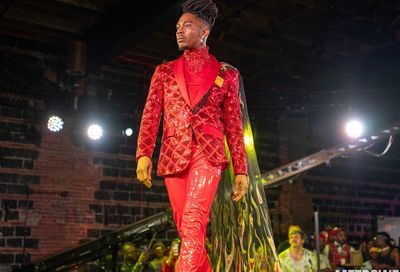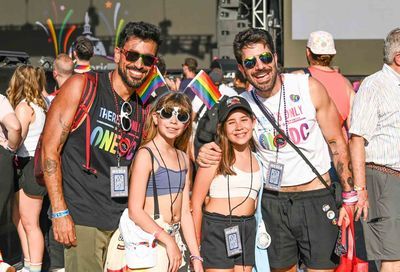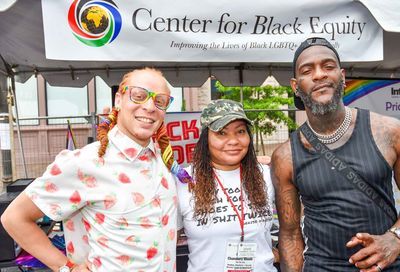Trans Mission
Mara Keisling believes the time has come for transgenders to be fully included in the politics of being GLBT
At the age of forty, a time when many people are contemplating the middle of their lives, Mara Keisling was at the beginning of a new one. In January 2000, she began her transition into life as a woman.
“I am extremely lucky,” she says. “I am one of the few people I know of whose parents picked her new name.”
That support from parents, family and friends is in large part responsible for Keisling’s successful embarkation on her new life. She jokes about her coming out: “I didn’t even lose the family members I wanted to lose.”
 |
Having spent years of her life as a man working on social marketing and health issues, Keisling was prepared in many ways to become politically involved as a transgender activist. Now 44, she’s the executive director of the National Center for Transgender Equality (NCTE), an organization founded in 2003 to focus on transgender issues from a national perspective.
In recent weeks, Keisling and transgender issues have been at the forefront with the Human Rights Campaign’s announcement that it will no longer support the federal Employment Non-Discrimination Act (ENDA) unless it specifically includes protections for transgenders, a position already taken by some LGBT groups such as the National Gay and Lesbian Task Force.
While HRC’s announcement was celebrated by transgender activists, others have expressed doubts about changing the scope of ENDA — many political experts have said that including transgenders will drive off moderate Republican support, making the legislation even less likely to ever pass.
Keisling thinks that expanding ENDA’s scope will only benefit the community in the long run, making explicit the ties between all the groups represented in the acronym LGBT.
“We are you and you are us,” she says.
As for the name she received from her parents, she has since found that “Mara” has many meanings: it’s Latvian for “ladybug,” Hebrew for “bitter,” and a Buddhist devil, among many others she happily details.
“They all have really ironic connotations,” she laughs. “I’m incredibly not bitter. I’m one of the most optimistic people you’ll find in the LGBT movement.”
METRO WEEKLY: What’s the first clear memory you have of knowing that you were a woman, that it was part of your identity?
MARA KEISLING: I always wanted to be a girl when I was a little kid. Some of my very earliest memories have to do with it. It’s been always me.
MW: How did that affect your growing up?
KEISLING: Anytime a child has a really deep secret that society teaches them they have to be ashamed of, it’s going to affect things — it’s going to make you a much more closed person than you probably would be. It’s going to make you a little more timid than you otherwise might be. And it’s going to be really hard. It’s something kids shouldn’t have to go through.
MW: When did it stop being a secret?
KEISLING: I didn’t come out to close friends and family members until May of 1999.
MW: How had being transgender been a part of your life before that?
KEISLING: It was a tremendous part of my life. I thought about it every single day of my life. It was in every social interaction and every relationship I ever had.
MW: How long have you actually lived as a woman?
KEISLING: Since January of 2000, so I’m new.
MW: So you would have already gone through your twenties and thirties. What was it at that point in your life that made you take that step?
KEISLING: Meeting other people like me who identified as transsexual and were able to make it work. When I was growing up there were periodic examples that you saw in the news media, but it wasn’t a realistic option. With the ’90s came internet access and online communities, and that has been a spectacular, amazing way for transgender people to understand that they are not alone. That definitely saved my life — I was able to meet folks all over the country. They were not just abstract people you saw in the news, but real people with real lives.
MW: When you were younger, who was the first transgender person you were aware of?
KEISLING: The first I remember was Tula, a British model and a James Bond girl [in For Your Eyes Only]. I hate to use the term “Bond girl,” but that’s what they called them and probably still do. But in the ’70s, [being a woman] was out of the question for me. It was something I desperately wanted and felt, but there was never a chance I would transition because people just didn’t do that. It turns out, though, that a lot of really brave people did. I didn’t know that at the time. In the ’80s, there were few places you could meet transgender people and learn about them. I don’t know what to call them, but there were magazines and drag bars.
MW: Sort of a sexual subculture with classifieds and semi-clandestine locations?
KEISLING: Right. And all I wanted to do was see if it was real and if there were people like me. That was tough.
MW: Can you describe what it was like the first time you walked into a place like that when you were still living as a man trying to figure things out?
KEISLING: I can very clearly remember the fear, the adrenaline, and then the sheer excitement of seeing all of these women. It was in a bar in New York City and I was just blown away. I just sat down and had a drink, because at that point I really needed it. That was around 1985 or 86.
Then I got into a relationship that meant a lot to me. I was raising a child with my partner and that took up a lot of my energy and time. I loved them dearly and that was a life I wanted to have. It’s a life I should have been able to have, regardless of my gender. Maybe not with that particular person, who may have rightly been attracted to a man as opposed to a woman. But transgender people, just as gay and lesbian people, ought to be able to have real relationships with partners and spouses, children and in-laws, and really big Thanksgiving dinners.
MW: Many transgenders, particularly youth, face a lot of barriers in their lives when they choose to live openly. When you transitioned, do you think that because you had established yourself professionally that you had more options and choices in how to live your life? Do you feel lucky relative to other transgenders?
KEISLING: There are pros and cons to transitioning early and there are pros and cons to transitioning later in life. I was fortunate less because I transitioned when I did and more because I come from a relatively privileged background — I was white, well-educated, and male. Unfortunately, in America, those are still attributes that make people safer and give people more flexibility than many people are fortunate enough to have.
Hate crimes and murders committed against transgender people more often than not are committed against low income, transgender youth of color. It’s because all of those things make you much more susceptible to violence and discrimination. I am in awe of these kids who can do more than just survive [being young and out] — it takes incredible courage and stamina. By the time of my transition, I had some money in the bank so I could afford a little bit of facial surgery. I could afford things that can keep me safe. So I have been incredibly fortunate and I never forget that.
 |
MW: When did you become involved as a transgender activist?
KEISLING: Around 2000 I met Sue Rankin, a professor at Penn State, who suggested I help with an effort to get a state hate crimes bill passed in Pennsylvania. I joined in and it clicked for me: I realized that I had something I could give. By that time I was meeting many trans people who were not having the fortune I was having with transitioning. People were losing jobs, committing suicide. And having one murder of a trans person every month in the United States was really getting to me. So I got involved in this effort.
I had moved back to Harrisburg, Pennsylvania in December 1999 in preparation for my transition. At some point I had crossed the line from where my activism was getting in the way of my work to where my work was getting in the way of my activism. I was a part of a small group of people who were working on some national and federal transgender rights issues, and all of us were frustrated by the lack of a transgender voice in Washington speaking for us. Since I was at a point in my career where I had an opportunity to make a shift, I moved to Washington in November 2002 to explore the possibility of setting up NCTE. The following year we founded it, with a lot of help from trans people all over the country and from LGBT groups and leaders. The Task Force has been a spectacular supporter of NCTE, not just with things like office space, but as amazing mentors. Other organizations have been fabulously supportive as well, willing to take us by the hand when we needed it, and to kick us in the butt when we needed it.
MW: As a political activist working on issues of how government interacts with sexual orientation and gender, what is your political philosophy about what government is for?
KEISLING: I’ve heard Bill Clinton’s philosophy on government described as “I don’t think government is the solution but I don’t think government’s the problem.” I think there are certain things the government does need to do, where it needs to take the lead. Human rights is up there at the top of the list, along with defending the country and making sure people are safe, because human rights is, in fact, making sure people are safe. So I think government does need to take a position on human rights and it does need to take a strong, unwavering position that everybody gets human rights.
For some reason, for every human rights advance a big chunk of Americans fight it tooth and nail. We see that not just LGBT people but with immigrants, with children, with women’s rights, and certainly still with ending racism. It is remarkable how humans will fight and fight and fight — then once they get it, they don’t understand that they ever had a problem with it and then they start picking on the next group. It’s really remarkable and it’s probably human nature. Government needs to take a role in enforcing the civility and respect necessary for human rights.
MW: What do you consider to be the mission of NCTE?
KEISLING: Very simple — ending violence and discrimination against transgender people. All the work we do is aimed at protecting transgender people, but we define that as anybody who is at risk because of their gender identify or expression. We like to work in collaboration with all LGBT organizations and all other progressive organizations. We have great relationships with almost all of them. We do nothing that would ever hurt LGBT people. We are very sensitive to that. There has been some concern over the last few weeks that the Human Rights Campaign’s new position of only supporting a trans-inclusive ENDA would in some way hurt LGBT people. I guarantee you that if we really believed that we wouldn’t go anywhere near it.
MW: Why should the “T” be included in LGBT?
KEISLING: Transgender people have been working very hard for the last thirty years to reintegrate back into the LGBT political movement. In the early ’70s we got of locked out of the activist class but have always — long before Stonewall and ever since Stonewall — been a part of the LGBT culture, space and life. We’ve always shared the same epitaphs when we are attacked. When so many gay and lesbian people were kids, they were teased and attacked and hated because of their gender expression, the same as many trans people. It is remarkable to me that that’s not obvious to everybody.
Right now in the transgender movement you can find people who will tell you that transsexuals deserve their rights but gender ambiguous people don’t or cross-dressers don’t. I think that’s unconscionable, short-sided and immoral. But that’s how people are sometimes. All of this hullabaloo over ENDA — in ten years we’re not going to understand what this was about. We’re all one community and we’re all being attacked by the same forces and the more of us who stand together, the better.
MW: Obviously, Rep. Barney Frank and [HRC political director] Winnie Stachelberg have been quoted in the past saying that adding transgender protections to ENDA would greatly reduce the chances of passing the legislation because it would then lose support among moderate Republicans and conservative Democrats. Do you think it will reduce existing Republican support?
KEISLING: Sure, it may. We have been working very hard to make that not happen. But you have to understand that ENDA was introduced in 1993 as a very narrowly focused bill because the community wanted something that could pass easily in a Democratic Congress and White House. And it didn’t. Since then, it has been building up support over the years. Is it possible it’s going to lose some sponsors? Sure. It’s hard to argue that that would slow down the bill when the bill is not currently speeding through Congress currently. We don’t know if next year we’re going to have a new Congress or a new president. But we do know ENDA is not going to pass this Congress. We’re going to want to introduce some anti-discrimination legislation in the next Congress and we have to be working on that. It just makes the bill a lot stronger for everybody by making it a transgender-inclusive bill.
There are lots of flaws in ENDA. It is not a perfect bill in a lot of different ways. It has some technical problems that the lawyers would all like to see corrected. It has an exemption for small employers, so a gay or trans person or bisexual person working in a three- or four-person office wouldn’t have the same kind of protection we would want. It’s really important to understand that the bill as it is isn’t going to protect everybody anyway. There’s a religious exemption. But again, it was designed to pass quickly and we were all wrong about that.
Including trans people in the bill will make it stronger for everybody in a couple ways. First, gay and lesbian people will benefit because so often they are attacked because of gender expression. Second, from a political point of view, it makes the bill stronger by bringing back the organizations like the Task Force, PFLAG and the Stonewall Democrats who won’t work on a bill that doesn’t include us all.
MW: Given that ENDA has come within one vote of passing the Senate, doesn’t it frighten you that it might become even harder to get passed? If politics is generally an incremental process — many civil rights victories have been won based on past successes — wouldn’t it be better to get it passed in one form and then work on expanding it to include transgender protections?
KEISLING: In 1990, the Americans with Disabilities Act started to move. I was not part of that, but near the end of the legislative process somebody proposed an amendment to exclude food service workers with HIV and AIDS. The disability community got together and said, “Nobody gets jettisoned, nobody gets left out. We don’t want the bill if it has that exemption in it.” They called the bluff and they won. It was a moral position and it was a tactically successful position. You can’t do what we’ve done for the last ten years, which is to present them with the absolute least we are willing to accept. And that’s what ENDA has been, the absolute least we are willing to accept. We need to make it stronger in a lot of ways.
MW: If we shouldn’t be asking for the least we will accept and instead asking for the most we would like to have, should we also be willing to compromise in terms of what actually gets passed?
KEISLING: Well, you necessarily have to compromise because even if we were to strengthen in lots of different ways, we’d never get it to where we really want it to be. It would be great if we had an anti-discrimination bill that included not just employment but also public accommodations in housing, education, and relationship recognition. ENDA, with or without trans people, is an incredible compromise. Moving forward with ENDA with trans people included, we may have to make some other compromises. What’s becoming clear is that it isn’t useful lock out a segment of the community.
It’s important to understand why trans people have been so insistent. One of the things we hear all the time is, “Why don’t you get your own bill?” And there are a couple of answers to that. First, we are you and you are us. It’s really that simple. In addition to identifying as trans, I identify as a lesbian. There are a lot of gay men who later identify as transgender; there are a lot of lesbians who identify as transgender and vice versa. So the overlaps in our community are really big.
Just as importantly, [including transgenders in ENDA] is the only way transgender people will ever get protected. While we might parse out the differences between gay, bisexual and transgender people, our enemies don’t. If I am ever a victim of a hate crime, the odds are the person stabbing me forty-eight times is going to be calling me “faggot.” And when we go to Congress, whether to friendly members or unfriendly members, they assume we are gay. They assume that sexual orientation will protect [transgenders]. If that were enough, we would embrace that. But attorneys representing discriminators and hate criminals will always be smart enough, as they have in the past, to show a judge that we are not supposed to be protected by sexual orientation protections.
Politics in Washington is based on numbers and money, access and expertise. First, our numbers aren’t as big. We’re maybe one half to one percent of the population, so we really don’t have the numbers to go it alone. Second, we don’t have the resources yet, although we’re starting to understand that there are a lot more resources in our community than we thought. Third, we don’t yet have the expertise, but we are starting to get it. Fourth, we don’t have the access. A big reason why we don’t have the access is that the gay community is seen as our gatekeepers. That term offends lots of gay and lesbian leaders because they think it has negative connotations — that they are purposely holding us down. I don’t mean that at all, but they are looked to by legislators to speak for us, and if that’s the case they obviously have to do it responsibly. But overriding all of that is my main point, which is “We are you and you are us.” We are one community, whether we like it or not, and I happen to like it. And one community ought to have one bill and ought to work together to get it passed.
MW: One last question: Do you see gender something that arises from a blank slate or as something that is innate?
KEISLING: There is something innate in me that makes me want to be one gender over another. That being said, I think it is societally determined. What’s male and what’s female — and even that there are two genders — is more societally determined. There may well be two sexes but it is not at all clear that there are only two genders, to say the least. But I’m not a theorist. We have real people whose lives are being destroyed, people losing their kids, people being murdered, people committing suicide out of despair, people losing their jobs. What I know is that these are real humans who need real help. That’s my job and that should be all of our jobs. The theory is nice and fascinating and intellectually challenging. But that’s not what we do at NCTE. We have a goal and we have to do everything we can to get there, for all LGBT people.
For more information about the programs, projects and policies of the National Center for Transgender Equality visit www.nctequality.org.
Support Metro Weekly’s Journalism
These are challenging times for news organizations. And yet it’s crucial we stay active and provide vital resources and information to both our local readers and the world. So won’t you please take a moment and consider supporting Metro Weekly with a membership? For as little as $5 a month, you can help ensure Metro Weekly magazine and MetroWeekly.com remain free, viable resources as we provide the best, most diverse, culturally-resonant LGBTQ coverage in both the D.C. region and around the world. Memberships come with exclusive perks and discounts, your own personal digital delivery of each week’s magazine (and an archive), access to our Member's Lounge when it launches this fall, and exclusive members-only items like Metro Weekly Membership Mugs and Tote Bags! Check out all our membership levels here and please join us today!








